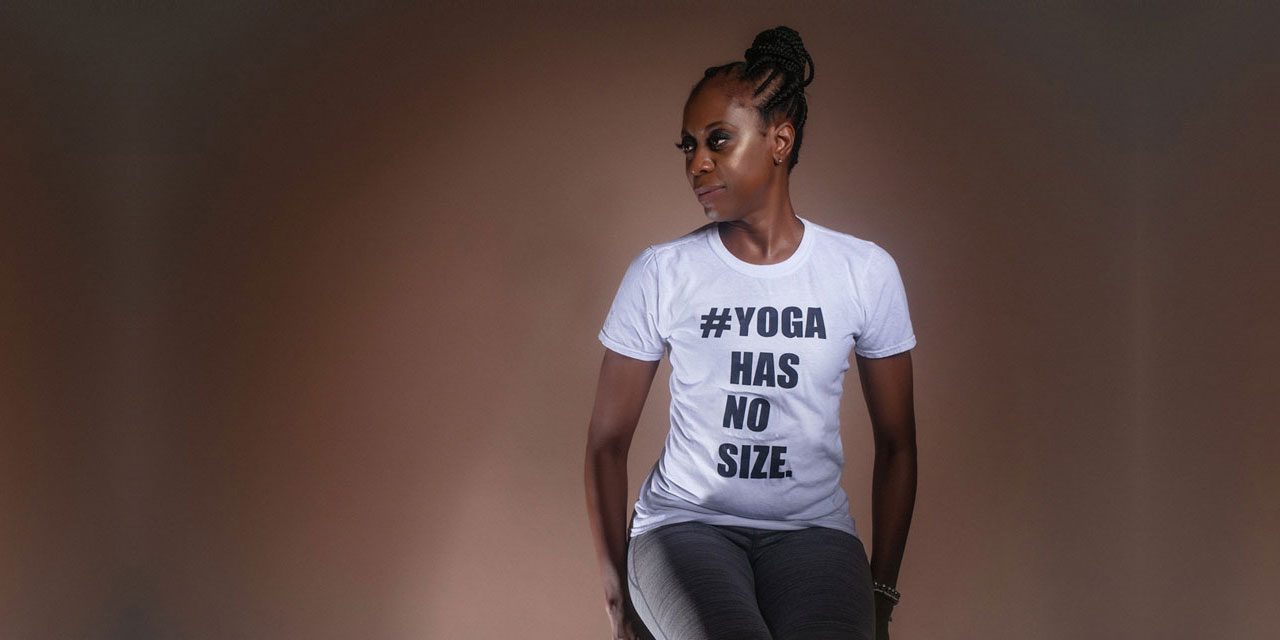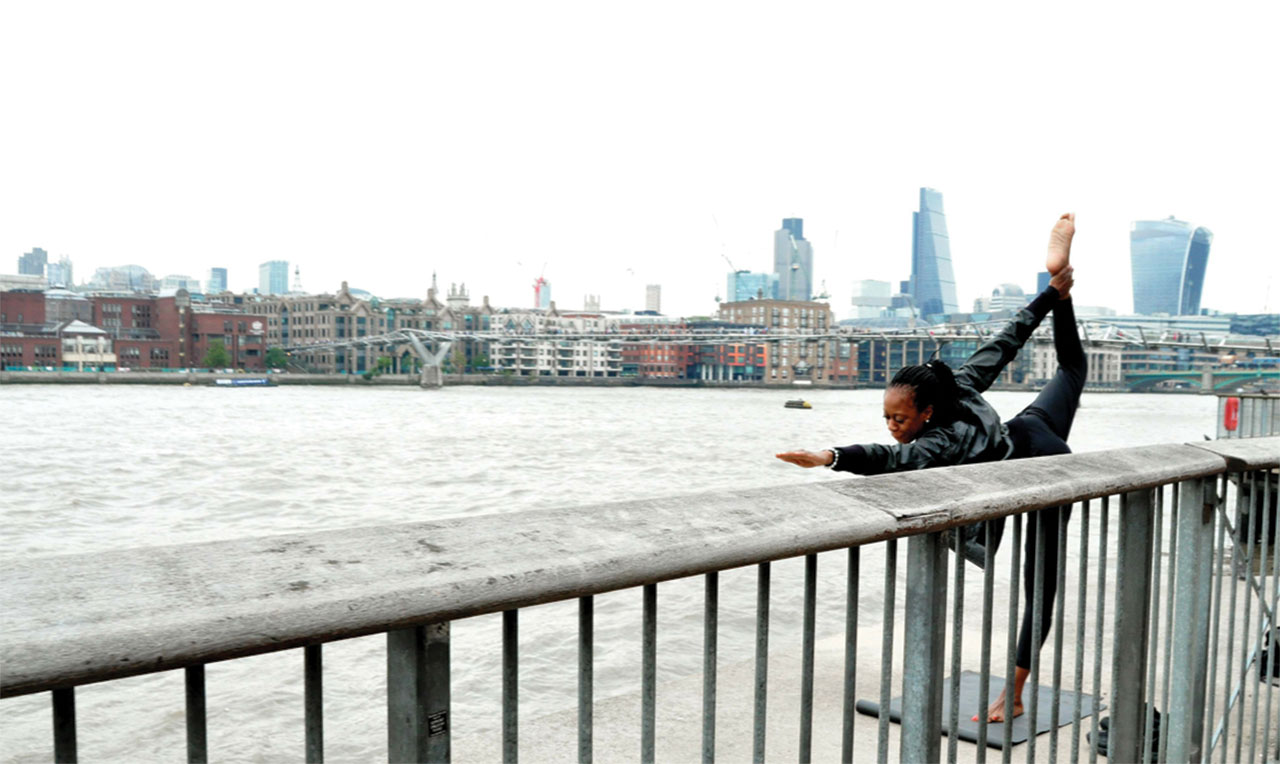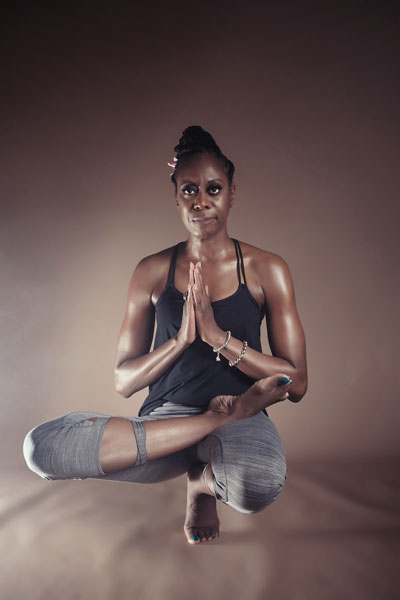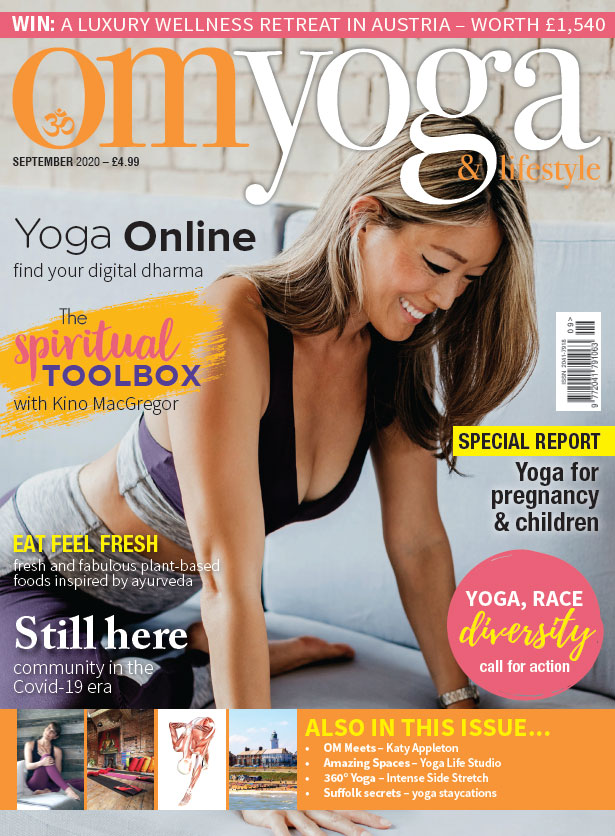
Time for Change
Yoga Racism Diversity
Yoga has been whitewashed and now is the time to change its reputation, writes Donna Noble
Lockdown saw a huge increase in Brits taking up sport and fitness activities. A report by Nuffield Health showed that 76% of people took up at least one new form of exercise, while the ‘Couch to 5k’ app has reported over 858,000 downloads since March.
However, research by Sport England shows that inequalities still exist in sport, with BAME (Black, Asian and minority ethnic) groups less likely to be active. A ‘Sport For All’ report earlier this year showed that only 56% of black people are doing the recommended amount of exercise per week.
Yoga teacher and diversity advocate, Donna Noble, reckons it’s time for change. She is calling out the fitness industry for its lack of diversity, stating that things have to change from it only being podium-worthy black sportsmen and women who make the headlines.
As the founder of Curvesomeyoga (@Curvesomeyoga), which runs inclusive and body positive classes and workshops, and co-founder of Black fitness festival, NoireFitFest (noirefitfest.com), here’s what she has to say: “If there’s one thing that the past few months have really shown us, it’s inequality. The Black Lives Matter Movement is the icing on a very bitter cake; we’ve watched, for months, how Covid-19 has impacted black and ethnic minorities at a far greater rate than their white counterparts. A recent study by the Office of National Statistics showed that black people were twice as likely to die a Covid-19-related death. Why is this? Why, in a society as diverse as ours, do we still see such a huge gap between black and white communities?
I’ve always celebrated my blackness and have used whatever platform I have to talk about why it’s important that we show people of colour at all levels of society. So many times I’ve heard “but you don’t sound black on the phone” and seen the shock when someone with a ‘white’ name like Donna Noble has walked into a room.
In 2020, being black is still very much a disadvantage. Now is the time for change
Fitness industry
I work in an industry that is predominantly white and doesn’t do much to show otherwise. Sure, we have the likes of Lewis Hamilton, the Williams sisters, Usain Bolt, and Mo Farah as sporting heroes, but why are we showing people that unless you make it onto the podium, you’re not welcome in the fitness industry?
There has to be more representation. We have to show black people, young and old, that fitness is for them. I heard a shocking statistic the other day that only 56% of black people are doing the recommended 60 minutes of fitness per week, so it’s no wonder that these communities are suffering greater health risks than others.
This is exactly why Lorraine Russell and I founded NoireFitFest, a fitness festival primarily aimed at the black community, showcasing black fitness experts. Lorraine Russell is a personal trainer and nutritionist, and after speaking to each other we found that we’re both seeing a lack of black faces in our studios and classes. Our plan was to host a physical event in London this year — a space for women, men, fitness lovers and novices, to take part and immerse themselves in a range of activities. Whilst we won’t be able to do this in quite the same way we’d intended, Covid-19 won’t get in the way of us profiling black fitness professionals and experts, and building a community.
Whilst the spotlight is on the injustice of inequality and the struggle that black people have, it’s our role – as two experts in the industry with a platform – to cultivate meaningful allyship. Blackness is trendy right now but it’s oft en performative. I don’t want people to forget what this is about.
“If privilege is used as a tool to
amplify black voices and spread
awareness, true systemic change
can occur a little bit faster.”

Western yoga
The lack of diversity across the fitness industry is even more apparent in yoga. It has been completely whitewashed, sexualised as part of the fashion industry, but I have made it my mission to show that yogis aren’t just size eight, six-foot, blonde women. Yoga is for everybody.
Curvesomeyoga celebrates just that. We welcome people of all shapes, sizes, ages, genders and fitness levels to our classes and workshops, to show them what yoga is really about. Everybody needs to be able to come into the yoga space and access the benefits, so I do everything from size 16+ classes, through to chair yoga and even bed yoga.
Let’s not forget that yoga originates from India and was originally designed by men for men. It moved over to Western society and has been adapted for this lifestyle, but with that comes a commerciality that yoga was never about. It’s big business, I get that, but we have to go back to the fundamentals of yoga and bring it to the masses. This idealist ‘yoga body’ isn’t representative of society and it isn’t representative of what yoga is and does for you — and that’s aff ecting who it’s enticing onto the mat.
This dangerous ‘branding’ of a practice that’s actually centred around inclusivity and community is doing more damage than good; it gives yoga a bad name and it’s a rhetoric that needs to change. I found my true love for yoga when I was really sick with Bells Palsy, caused by the stress of years in the corporate world, and it helped me find my flow again. That’s what I want it to do for others.
Thankfully, I am not alone in this quest. The body positive movement – a movement started by black women who wanted acceptance, regardless of their size – is taking yoga under its wing and the likes of Jessamyn Stanley (jessamynstanley.com) and Antoinette (@journey2antoinette) are really out there showing that moving your body, whatever its shape or size, is so important.”

Donna Noble is passionate about making yoga available to all. Unfortunately, she can point to instances from her own experience that might help other people understand this issue more clearly. That includes some very specific examples: “Continually being judged on the colour of my skin and not on my ability. Having to work twice as hard in order to be treated the same. Being the token black yoga teacher or one of the few on yoga studios schedules.” At the same time, she feels that there is an urgent need for more diverse yoga leaders.
“Students will venture into large yoga studios but will often leave feeling disappointed and will travel distances to classes that are more inclusive and diverse. While teaching at a show on the International Day of Yoga, it became apparent I was doing my community an injustice by hiding. I was scheduled to teach the last class of the day. The weather was gloomy, in typical British fashion, and I was convinced no one would stay for my class — I was so wrong! I was blown away to see how many black yogis had come to support me. To be in a space where the majority of the practitioners looked like me was astounding! This showed that representation and being visible matters. If you don’t see yourself represented, why would you do something? To be told that they had made the effort to come and take my class was deeply humbling.”
But there’s also a degree of frustration that it has taken such a tragedy — the controversial death of George Floyd in the USA in May — to reach this point.
“I would like to say that it is a shock and a disappointment that it has taken the death of George Floyd and so many others to start to effect real change when so many of us have been highlighting the lack of diversity in so many industries — including yoga — for so long. I hope the changes that we are starting to witness will be more than performative.”
And there are things that can be done to make improvements, she adds. That includes people in positions of power making a genuine effort to include black people in the decision-making process. “This must not be seen as tokenism but a genuine attempt to broaden the appeal of yoga and wellbeing. Also, the people who make the decisions need to be educated in implicit bias; a lot of people have unconscious biases without being aware of them. There is no simple solution to solving racism. However, if privilege is used as a tool to amplify black voices and spread awareness, true systemic change can occur a little bit faster.”
Donna Noble is an advocate of body positivity and has been teaching yoga since 2011 internationally and around the UK at studios, festivals and wellbeing events. She recently led an online class as part of Fearne Cotton’s Happy Place Festival and has appeared in OM and other media, such as HuffPost and Sainsbury’s Magazine. Find her at: thenobleartofyoga.com




